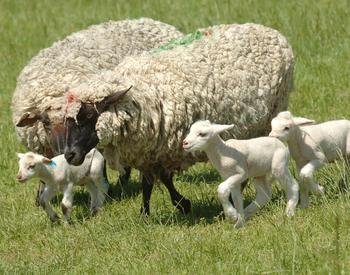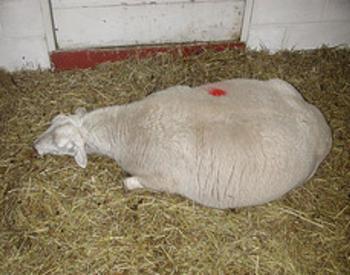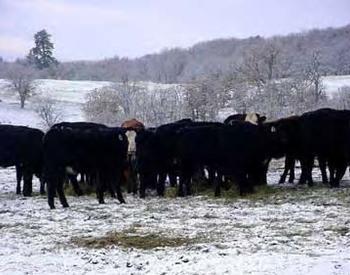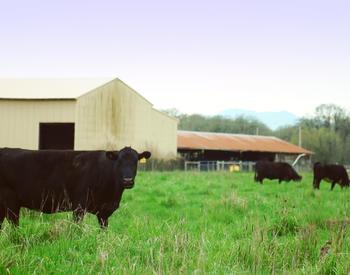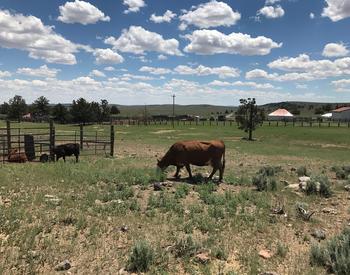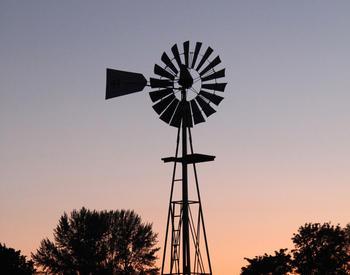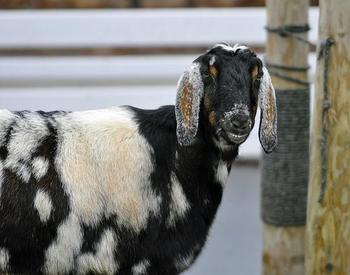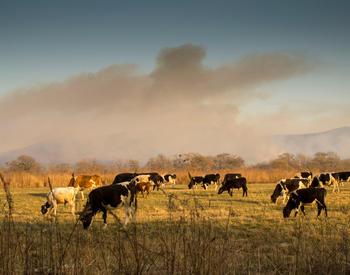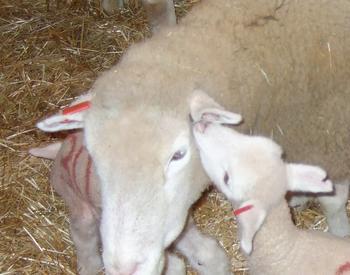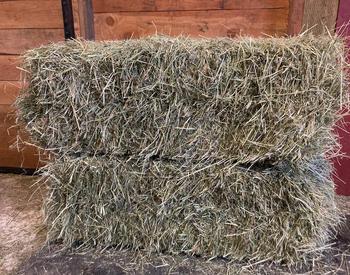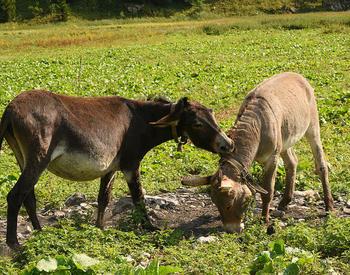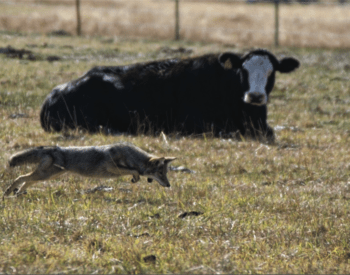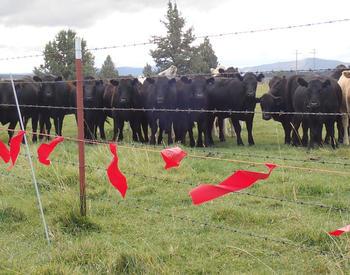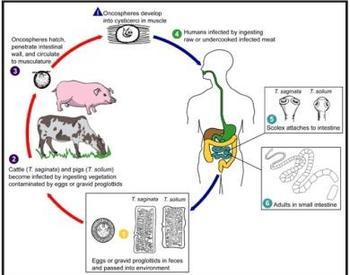Transcript
Welcome to Living on the Land, an award-winning source of useful information brought to you by your Oregon State University Extension Service.
When talking about the way sheep and goats eat, browsing is eating at eye level or above, and grazing is eating with the head down. Both sheep and goats can do both, but goats prefer to browse and sheep prefer to graze.
It's difficult to establish browse plants for goats. It's best to let them eat unwanted plants such as poison oak, English ivy, Himalayan blackberries, and multi-fluorose. Be sure to supplement browse diets with extra forage or concentrate to meet nutritional needs. Don't allow livestock to graze pasture below 3 inches tall.
Most parasite larvae reside there and pose a serious health threat if ingested. Preserving the lowest 3 inches of grass also benefits pasture regrowth and long-term forage production. Sheep and goats can suffer several ill health conditions related to nutrition and feeding. Pregnancy ketosis is common in sheep and goats.
This condition typically arises late in an animal's pregnancy when there are several rapidly growing fetuses. To prevent ketosis, feed sheep and goats in the last third of pregnancy a diet that gradually increases in energy content. A good guideline is to start slowly, six weeks before kidding and lambing.
Feed about a quarter pound of energy concentrate per pregnant dam per day until you are feeding one pound per fetus by the time of kidding and lambing. Acidosis is a common disorder among sheep and goats when their owners are inexperienced. It's caused by feeding high-energy diets incorrectly. Chronic acidosis can cause appetite loss, loose feces, and reduced health and growth. And severe acidosis can be fatal. To prevent this condition, make dietary changes gradually and don't overfeed grain or concentrates. Vitamin and mineral imbalance can cause milk fever, white muscle disease, and blindness among other serious conditions. Urinary tract stones are a serious concern for weather.
You can prevent these conditions with proper mineral and vitamin intake. Sheep are sensitive to high levels of copper, so be sure your mineral supplement is formulated specifically for them. Toxic plants are another threat to sheep and goat health. Although livestock generally avoid eating bitter plants, they don't know which plants are toxic. To protect your animals, identify and eliminate toxic plants in your pastures and buy weed-free hay.
Your local Extension educator or weed control supervisor can often help identify weeds and explain how to control them. To confirm that you are feeding your animals what they need, you can send samples of hay or other forage to a laboratory for chemical analysis. You can use the results to create a balanced diet for your sheep and goats. Consult your veterinarian, Extension educator, or livestock nutritionist for help. For more information on getting started raising sheep and goats, contact your local Extension agent, Natural Resources Conservation Service, or Soil and Water Conservation District. Technical and financial assistance may be available for landowners wishing to address resource concerns on their property.
Sheep and goats require five essential nutrients: water, energy (carbohydrates and fat), protein, vitamins, and minerals. A deficiency in any of these can cause illness, poor growth or performance, and even death. This publication describes ruminant digestion and nutrition.
This is from the Living on the Land series. Download the related PDF - Living on the Land: Getting Started with Sheep and Goats: Nutrition and Feeding
The phrase “Living on The Land” is used with permission from Living on The Land Stewardship for Small Acreage, © 2008, UNCE/WSARE.
